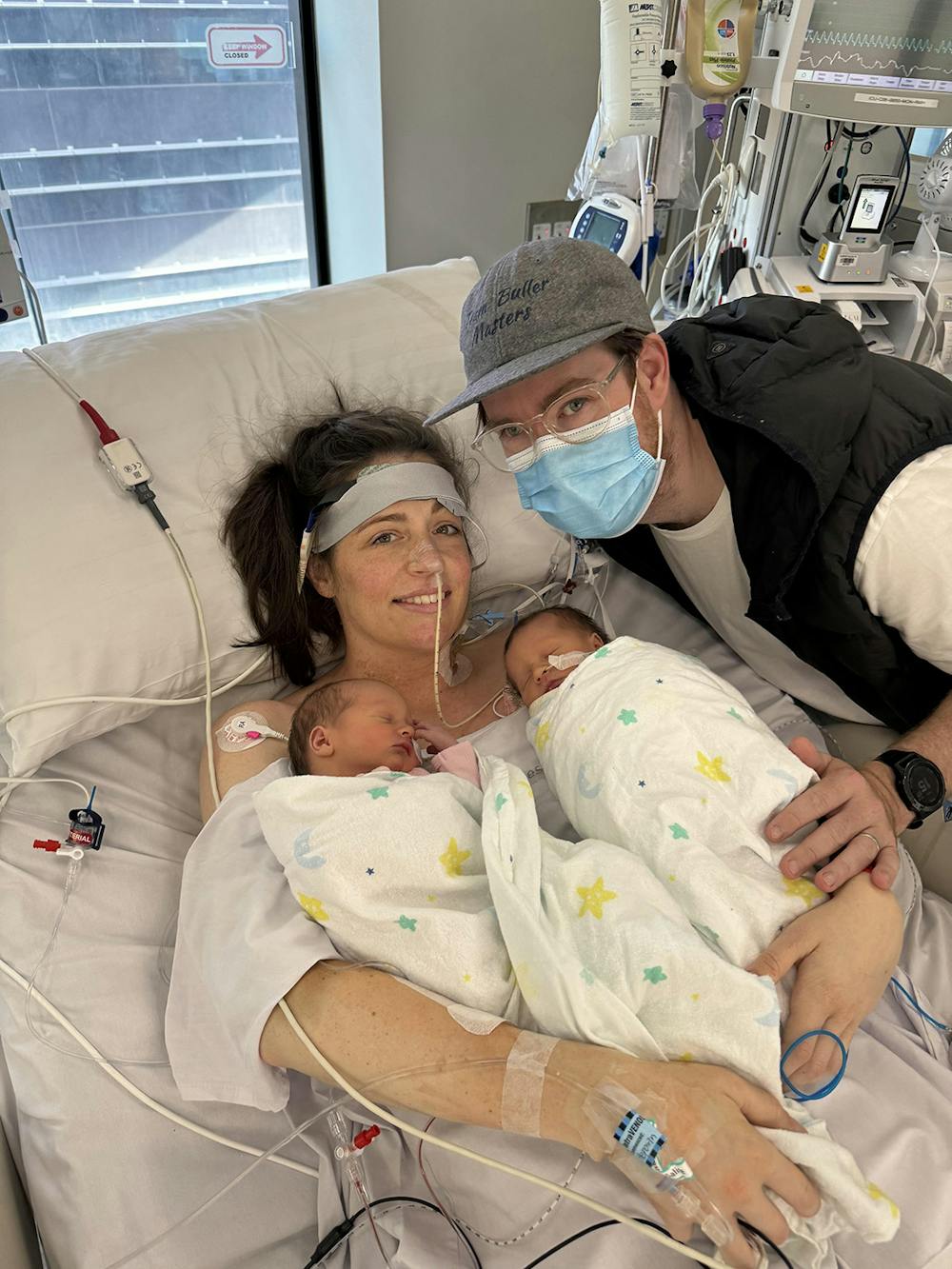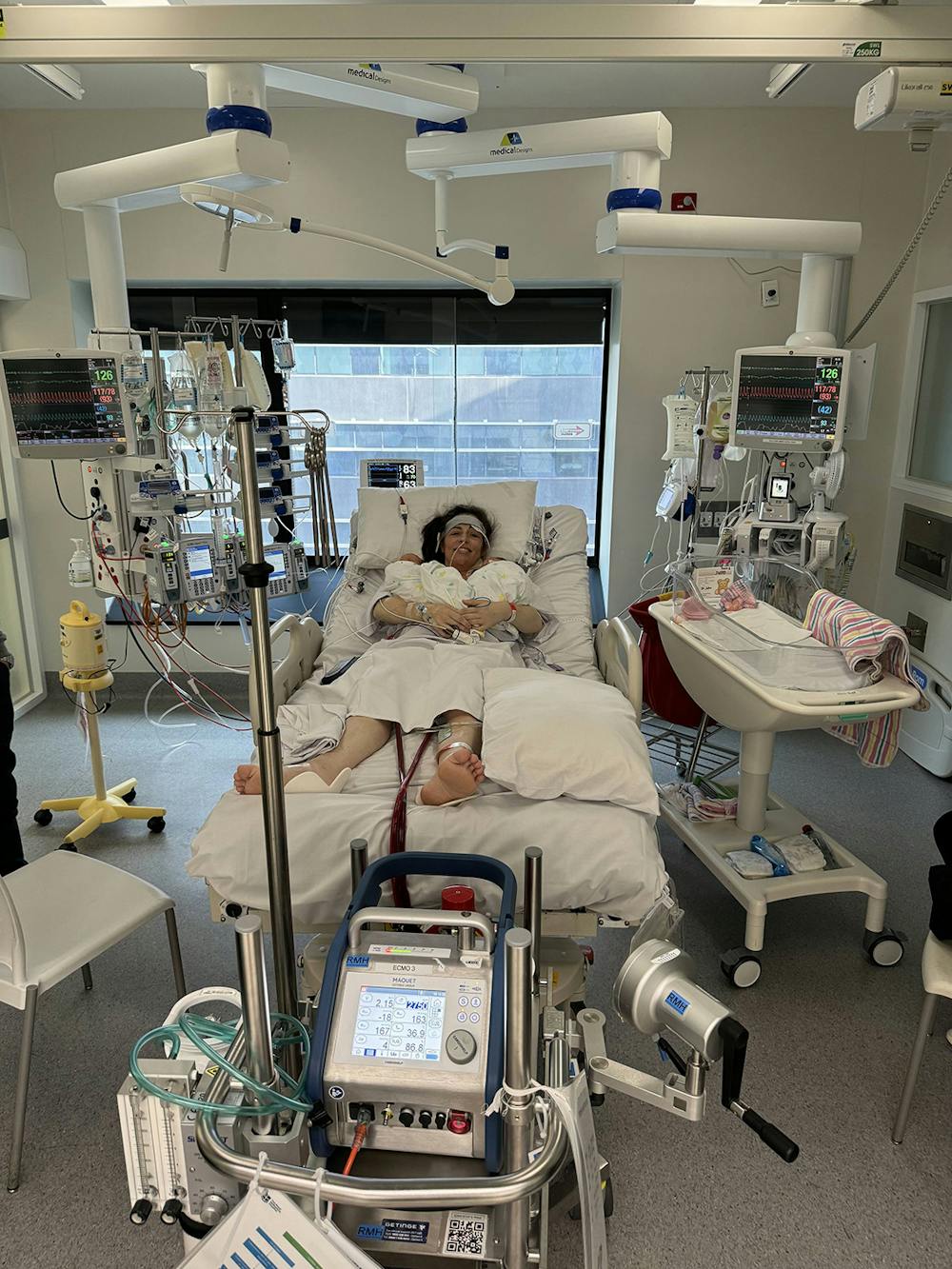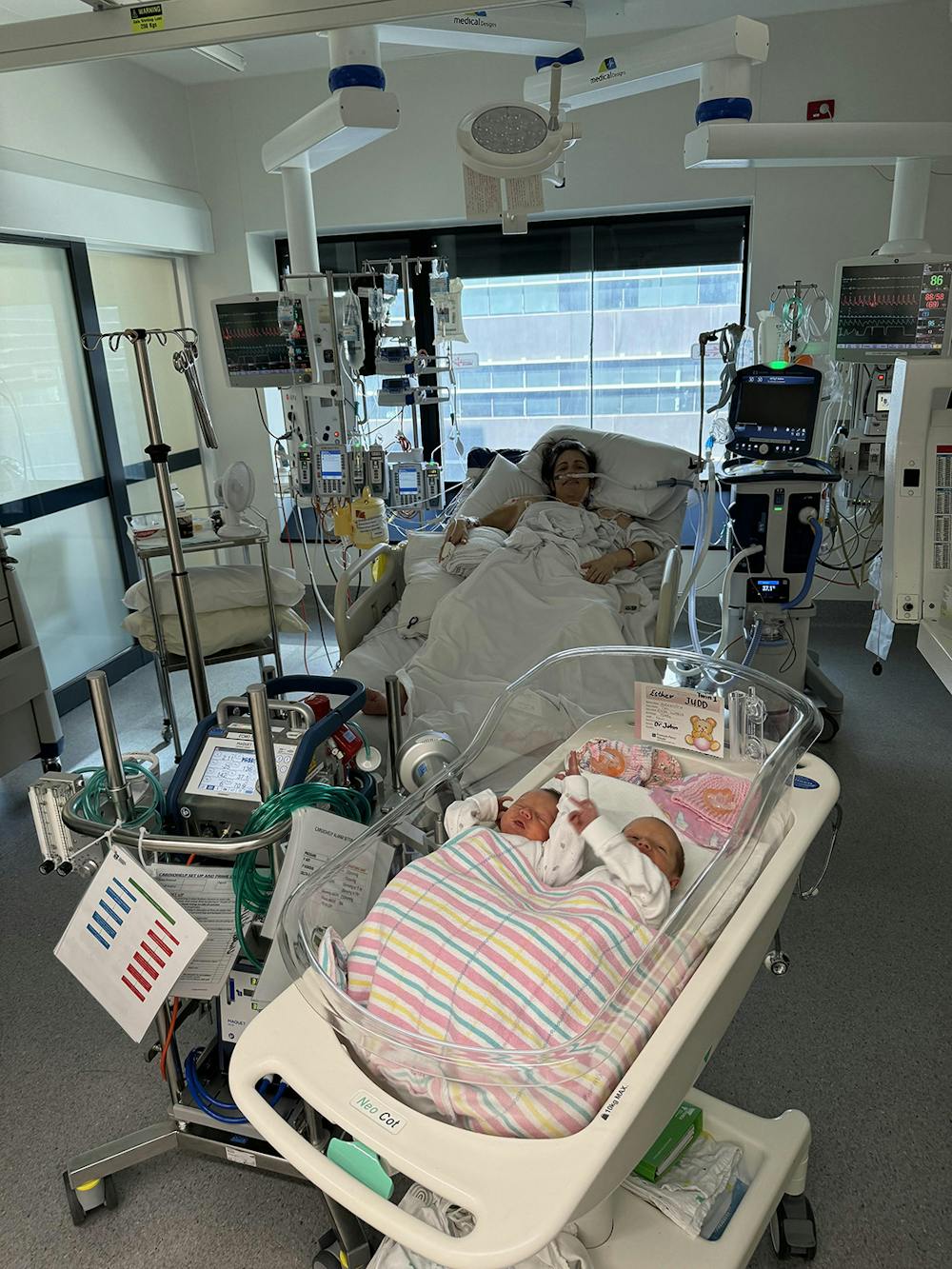Sitting at home, holding her newborn twin babies, Alexandra Judd looks like any overjoyed, doting Mum.
It’s hard to tell she was recently on life support, considered one of the Royal Melbourne Hospital’s (RMH) sickest patients.
On 2 May, Alex, her husband Tim and their families, were simultaneously experiencing one of the best and worst days of their lives.
After safely welcoming their identical twin daughters, Esther and Violet, via Caesarean section at Frances Perry House - mere hours later, Alex was rushed across an interconnecting bridge to the RMH’s ICU.
The mum-of-three had had a reaction post-birth, and her heart was struggling to pump.
“I only remember they called the code, then ventilated me - but my family definitely won’t forget that afternoon,” Alex recalls.
In a whirlwind of doctors, nurses, lights and monitors that included teams from the RMH, Frances Perry House and the Royal Women’s Hospital - Alex was intubated and put on an ECMO (extracorporeal membrane oxygenation) machine.
The special machine is an advanced form of life support that takes over the function of the heart and lungs.


“They called Tim and said, ‘you need to come right now, she is the sickest person in the hospital, this is life-threatening’,” Alex says.
Acting Deputy Director of the RMH’s ICU, Dr James Anstey, was one of the many doctors and nurses who worked to determine exactly what was wrong with Alex - and how to fix it.
“The left [heart] ventricle – the major chamber – was barely contracting,” Dr Anstey remembers.
“It was clear that medications alone were not going to be enough to support Alex’s heart. So we assembled an ICU ECMO team – we had a chat to her husband and explained what we needed to do…
“We put her on ECMO and that very quickly stabilised her organ function – her heart was still not pumping well- but that allowed us to maintain flow to her organs.”
Dr Anstey said only about 20 to 30 people per year required ECMO at the RMH – showing just how serious Alex’s case was.
Incredibly, over 48 hours Alex had stabilised and was able to be brought out of sedation.
“What was particularly lovely about it was that Alex’s twins could come across and be with her,” Dr Anstey says.
“She was awake and alert on ECMO and able to bond with her babies – the fact she needed that support didn’t stop them from spending that valuable time together.”
Alex spent six days on ECMO in ICU before being transferred to the RMH’s cardiology ward and then back to Frances Perry House to be closer to her babies. The cause, they determined, was most likely stress-induced Takotsubo cardiomyopathy – a condition which causes the heart to lose its ability to pump blood normally.
“It was slow going for a couple of days to get my heart to start ‘doing’ again,” Alex says.
“[But] every single day since I’ve hit milestones and improved - and I’m just so grateful.”
Alex said the “whole precinct is incredible” and thanked the many people involved in her care. This included her obstetrician and anaesthetist and the theatre team, all from the Frances Perry House, obstetricians from the RWH who visited multiple times a day, and doctors and nurses at the RMH from the ICU, cardiology, cardiothoracic surgery, perfusion and anaesthetic teams.
Dr Anstey echoed Alex's praises, highlighting her case as the perfect example of how the Parkville Precinct works together to provide the best care.
“The ICU can be such a dark place but there is so much light there,” Alex says.
“Everybody [across the three hospitals] made an effort to include me in my care plan. I don’t know what else to say other than I am so grateful all the time - the highest level of care you could possibly hope for.”
She said she was looking forward to getting back to some kind of normality at home with three-year-old son Louis and the “ECMO twins”.
“My family have been a great support – they did not hear the news they were expecting to hear,” Alex says.
“Our broader community have leaned in and done everything they can and I can’t wait to say thank you to everyone for the love and support we have received.”
And while Alex will be taking the coming days and weeks slowly, she’s just grateful to be smiling down at her children.
“Our story could have been so much worse… I am so thankful,” she says.
In 2019, the RMH was grateful to receive a donation from Mr Bruno Moras, which funded the purchase of an ECMO machine.
The RMH is thankful to Bruno, and other generous supporters like him, who support life-saving equipment. To donate, visit the RMH Foundation website.



We provide a media service from 6am to 9pm each day. Journalists are welcome to contact our media adviser on-call via the RMH Switchboard on (03) 9342 7000.
During business hours, journalists can email mh-communications@mh.org.au. We do not respond to emails outside business hours.

